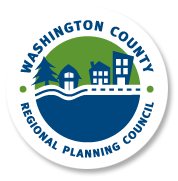Streetlight Reform for Rhode Island Municipalities
During our recent Energy Efficiency project, the WCRPC found that although streetlights are a significant expense to our municipalities, the streetlights could not be improved, nor could costs be reduced, under current rules and regulations. In other states, such measures as modified tariffs, municipal ownership, and innovative financing have significantly reduced street lighting costs and improved efficiency. With no provision in RI for introducing more efficient lighting and no control over management or maintenance of the streetlights, the WCRPC studied the issue and is working to implement a radical redesign of the streetlight system in Washington County, and Rhode Island as a whole.
WHAT WCRPC has done about it:
- Secured a grant from the Rhode Island Foundation for research and analysis
- Identified solutions
- Wrote the Municipal Streetlights Investment Act
- Secured House and Senate sponsors
- Built a successful coalition of energy, environmental, and government groups
- GAINED PASSAGE!
- Governor Chafee signed the Act into law on July 15, 2013
- New Rate Tariff submitted to RI Public Utilities Commission September 2013
- Led four interveners, including RI League of Cities and Towns at teh RI PUC to protect municipal interests
- GAINED PUC APPROVAL of most elements of reform package
Streetlights Refrom can now be implemented. We will help each town/city in RI to save:
- Estimated 40% annual expense reduction
- Statewide, this totals $8,000,000 every year
- Develop a PRISM, the collaborative streetlights management program
PRISM
Maximum sustained savings are acheived only by collaborative programs that capture economies of scale and provide enough resources to acheive what individual towns or cities simply cannot do.
PRISM, the Partnership for Rhode Island Streetlgihts Management, is a formal statewide program to manage all municipal street lgihts in Rhode Isand. PRISM will be overseen by its member municipalities and will coordinate:
- Cost benefit analysis for each community
- Purchase of streetlgihts by each community
- Inventory capture and verification
- Purchase negotiations
- Each community's particpation in statewide mainenance contracts
Municipalities are currently limited in how they can manage this expensive public safety resource, costing RI communities a combined $17 million annually (Washington County communities a combined $1.2 annually), because they do not own the lighting fixtures, and instead are mandated to pay annually according to a Public Utility Commission (PUC) approved Rate Tariff.
Analysis of the current arrangement shows solutions that will benefit our municipalities, remove the mandate, and provide for local cost control. The PRISM streetlights reform program will enable our towns to control the delivery, cost, and maintenance of its streetlight systems. Municipalities can voluntarily participate in PRISM, or choose to continue to operate under the current process.
The streetlights reform program can reduce the total statewide municipal cost for maintenance by $8 million tannually. It will not affect the electric delivery charges paid to National Grid, nor the cost of power for streetlights that, for most towns, is provided by the League of Cities and Towns’ REAP program.
Municipal Streetlights Investment Act
Drafted by the WCRPC to make the streetlights reform program possible, the Streetlight Investment Act was supported in both the House and Senate, as well as by National Grid, Verizon, the League of Cities and Towns, the Environmental Council of Rhode Island, and the RI Office of Energy Resources.
Here are the main points of the Streetlight Investment Act:
- Removes the mandate that all street lighting be provided by the electric distribution company (in most cases, National Grid)
- Allows municipalities to purchase and control their own streetlights as a public safety resource
- Sets how the purchase process is calculated (original cost less depreciation)
- Encourages regional collaborative maintenance programs
- Requires inclusion of solid-state lighting (LED) and dimming controls
